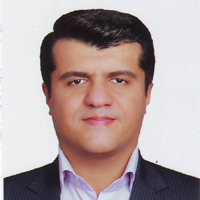Introducing traditional and modern methods of water extraction in nomadic areas
Author(s):
Article Type:
Research/Original Article (دارای رتبه معتبر)
Abstract:
As the first social system, nomadic life has faced many challenges, including the need for drinking water, livestock, agriculture, and horticulture, despite their significant role in the country's economic, social, and cultural development. Low rainfall with inappropriate time and place distribution and increasing demand are the main problems in nomadic areas. On the other hand, water extraction is a method; which has been used for more than several thousand years to concentrate, collect and distribute water for various purposes. The purpose of this research is to introduce new and traditional methods of water extraction, suitable for summer and winter areas. The research method is descriptive-review and the tool for collecting information, documents and documents related to the subject. The collection of information continued until we reached the saturation stage in extracting the main research keywords and new and traditional methods of water extraction. The success of water extraction systems depends a lot on their environmental criteria and technical design. Therefore, each of the mentioned methods should be selected according to the climatic conditions of summer and winter areas and the technical design of the construction of each of the structures.
Keywords:
Language:
Persian
Published:
Journal of Extension and Development of Watershed Managment, Volume:11 Issue: 43, 2024
Pages:
8 to 19
https://www.magiran.com/p2720008
سامانه نویسندگان
مقالات دیگری از این نویسنده (گان)
-
Introducing satellite data bases of precipitation in Iran
*,
Journal of Agricultural Information Science and Technology, -
Modeling soil loss due to gully erosion in the data-scarce regions
Bahram Choubin *, Omid Rahmati, , Samad Shadfar, Ahmad Najafi Eigdir
Iranian Journal of Soil and Water Research, -
Introduction and application of the SWOT model in strategic planning of comprehensive watershed management
*, J. Mosaffaie, A. Salehpour Jam,
Journal of Extension and Development of Watershed Managment,




